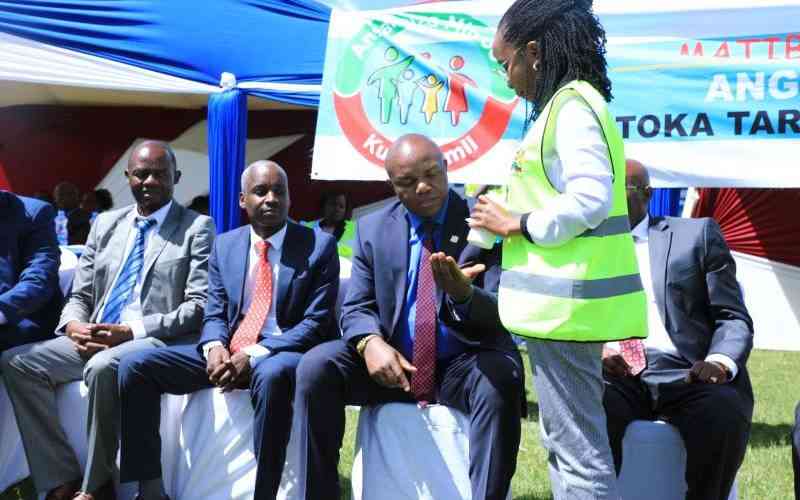×
The Standard e-Paper
Fearless, Trusted News

Machakos Deputy Governor, Francis Mwangangi (center) receives an intestinal worms tablet from a health worker during the launch of Mass Drug Administration at Machakos Stadium on June 7th 2023. [Erastus Mulwa, Standard]
Some 5.6 million residents in five counties will now benefit from free Bilharzia drugs administration.